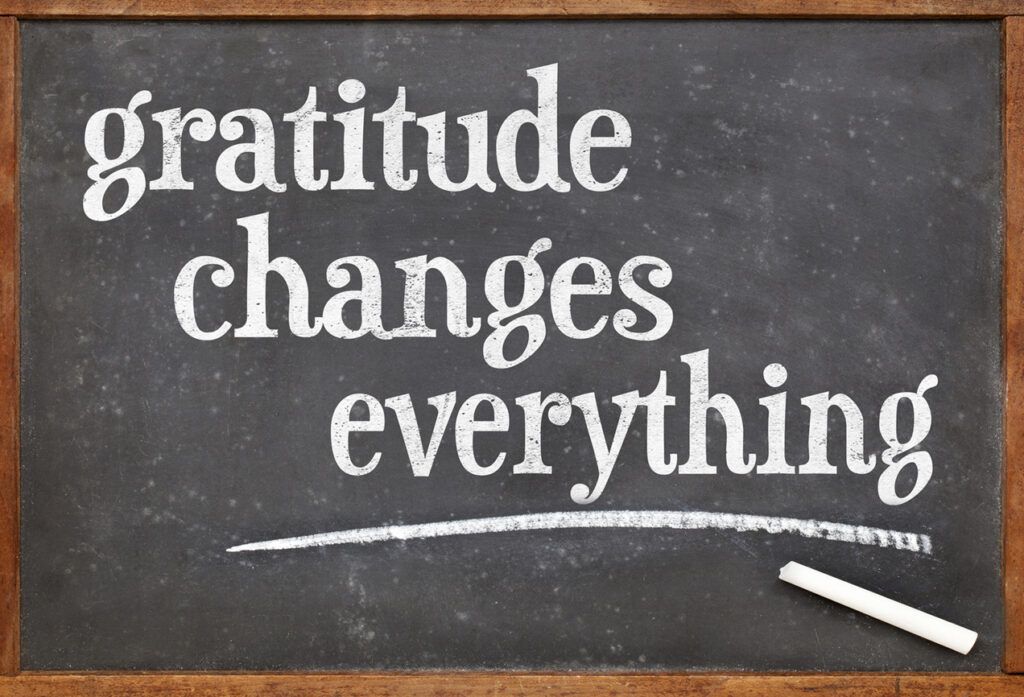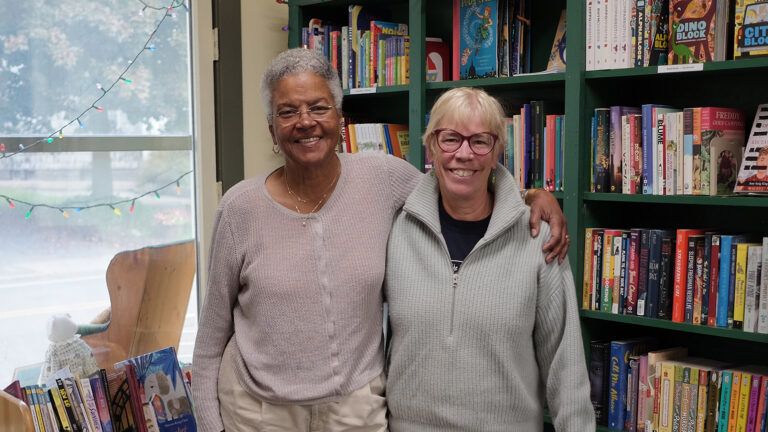Not long ago I wrote a book called Thank You Power. It came out of a hunch that gratitude makes a huge difference in people’s lives. As a TV reporter for three decades, I’ve been sharing the stories of ordinary Americans, trying to make sense of the situations in which they’ve found themselves. It’s not always easy: the mother of a brain-damaged accident victim; the family of a teen killed by a drunk driver; the man battling a life-threatening disease.
But I’ve always marveled that certain people, even in the face of heart-stopping obstacles and the most difficult circumstances, are able to go forward with smiles on their faces and optimism in their outlooks. How is this possible? In each instance, it ultimately comes down to the same answer: They were grateful. They found something for which they could be thankful, because being thankful was a long-held habit.
I remembered those “Debbie, say thank you” admonitions from my mom and dad. Momma was always nice to me when I handed her my birthday thank-you notes to mail. “Good girl,” she’d say as she ruffled my hair. I would be in her good graces for the rest of the day. But there was something more I learned about gratitude back then, something deeper, something summed up by a 12-year-old girl looking for her mother after school.
To the untrained observer, it was utter chaos as the school bell rang and an entire building of fifth and sixth graders, armed with bookbags and basketballs, collided in the fight to be first out the door. Inevitably a kid or two ended up pressed to the wall before the sheer weight of a pack of preteens forced open the heavy door.
What appeared to be mayhem was, in truth, a specific pattern of movement. A blonde with straggly pigtails and saggy socks headed to the far east side of the playground. There, a row of station wagons and sedans were lined up, engines starting as drivers saw the first children appear. Expectantly, the little girl scanned the road. There it is! She spotted the green metallic Buick. Momma’s here! she thought, her pace quickening to a joyful skip. Momma came to pick me up! That was me.
For almost all of the students at City Park Elementary in Dalton, Georgia, it was no big deal for their moms to be at school for dismissal. Laura’s mom was there every day in her snazzy Ford Mustang, usually with a set of golf clubs in the backseat. But when my mom made it to pickup, it was a red-letter day! My mother was battling rheumatoid arthritis (RA), a crippling disease that often left her sapped of energy and far too achy to attempt anything as strenuous as driving. With feet swollen like bricks and knees the size of softballs, even a few steps could be agony. If Momma was in the pickup line, then she was feeling pretty good that day, which meant it was a good day for me.
As a girl I grew up silently celebrating the days that my mother was, if not pain-free, at least pain-reduced. I’d secretly cheer when she put on lipstick or the dress with hard-to-fasten buttons. I gave internal applause when she’d have the energy to get a head start on a roast for dinner. RA is a chronic and progressive disease. Back then, treatment options were limited and not very effective.
As time went on, school pickups and fancy dinners really did become something to appreciate. The gratitude I felt for my mother’s “good days” was more than just a passing moment of happiness. It became the cornerstone of a resilience and strength that has seen me through tough times both then and now. It has also been the key to tapping into perhaps the most underutilized force out there, what I’ve come to call Thank You Power.
The other thing I can see looking back is the makings of a reporter. I loved a good quest. What fourth-grade kid willingly goes to the library to do a report? I spent a lot of time there, having exasperated my teacher with an endless stream of questions. Finally Mrs. Eddings shooed me out of class, saying, “That’s a very good question, Debbie. Go look it up and make a report on it so the entire class will know.” It took four or five reports before I realized I ought to keep my mouth shut. Only many years later did I realize my library exile left me with the gift of being able to “find out” my own answers, the lynchpin of an adventure in journalism that marks its 30th anniversary this month.
Growing up in the South I was surrounded by storytellers, and Daddy was one of the best. He loved to tell stories and instilled that same love in me. As a journalist, I got paid to tell stories, and words became tools. But as a reporter, I also looked for the fact that seemed a bit off, the story that didn’t fit. It didn’t make sense to me that, over and over, people in absolutely the worst situations seemed relentlessly optimistic. They looked for the better day to come and expected it with certainty.
The Bible-reading, churchgoing girl in me has long sensed that looking on the bright side helped me get through the tough times. Finding a purpose and looking for the blessings in adversity worked when Mom was ill, when my dream job on the Today show turned into a nightmare, and countless other times. But the hard-bitten journalist in me countered, Where’s the proof? Just because I felt like my life was better didn’t mean it was. Like Clara “Where’s the beef?” Peller in the old Wendy’s commercials, I wanted the goods. Had anyone reputable studied this gratitude thing to see if there were measurable benefits from counting your blessings? I reverted to fourth grade “find out” mode, this time armed with the skills of a journalist, to investigate. What I found were well-crafted studies.
Respected psychologists had found that better health, greater resilience, improved cognitive skills and the ability to undo stress were real results of gratitude. Two professors in particular, Robert Emmons and Michael McCullough, did an experiment that was brilliant in its simplicity. They took three groups of volunteers and randomly assigned them to focus on one of three things for a week: hassles, things for which they were grateful or ordinary life events. The people who focused on gratitude were happier. They reported fewer negative physical symptoms and were active in healthy ways. They spent almost an hour and a half more per week exercising than the people who focused on their hassles. Life was better. For skeptics like me, I published my sources down to the page numbers.
I can also tell you how Thank You Power worked in my life. For years I’ve suffered from migraines. I’ve done everything every doctor recommended, but after my investigation into gratitude, I tried something new. I made a daily habit of writing down the things that made me grateful. And I started seeing the benefits. My migraines have all but disappeared, my energy has increased and I’ve experienced joy by “being there” for others. Thank You Power, with its science behind what begins with the simple act of writing one’s blessings, has resulted in a flood of response.
My e-mail is swamped with testimonies of challenge and change, hope and happiness. I heard from a man who survived a massive pulmonary embolism and now surreptitiously picks up the checks for unsuspecting restaurant patrons. Or the man who tells me he just went to church for the first time in 40 years! Or the lady who writes, “I’m thankful I read your book and am now reading my Bible.” I’m reading my Bible too. I always did, but do so now with greater appreciation for the scriptural command, “In all things give thanks.” Not some things. All things. That is the secret of the people I’ve seen who’ve met adversity with optimism. Even in the worst of times, they give thanks.




